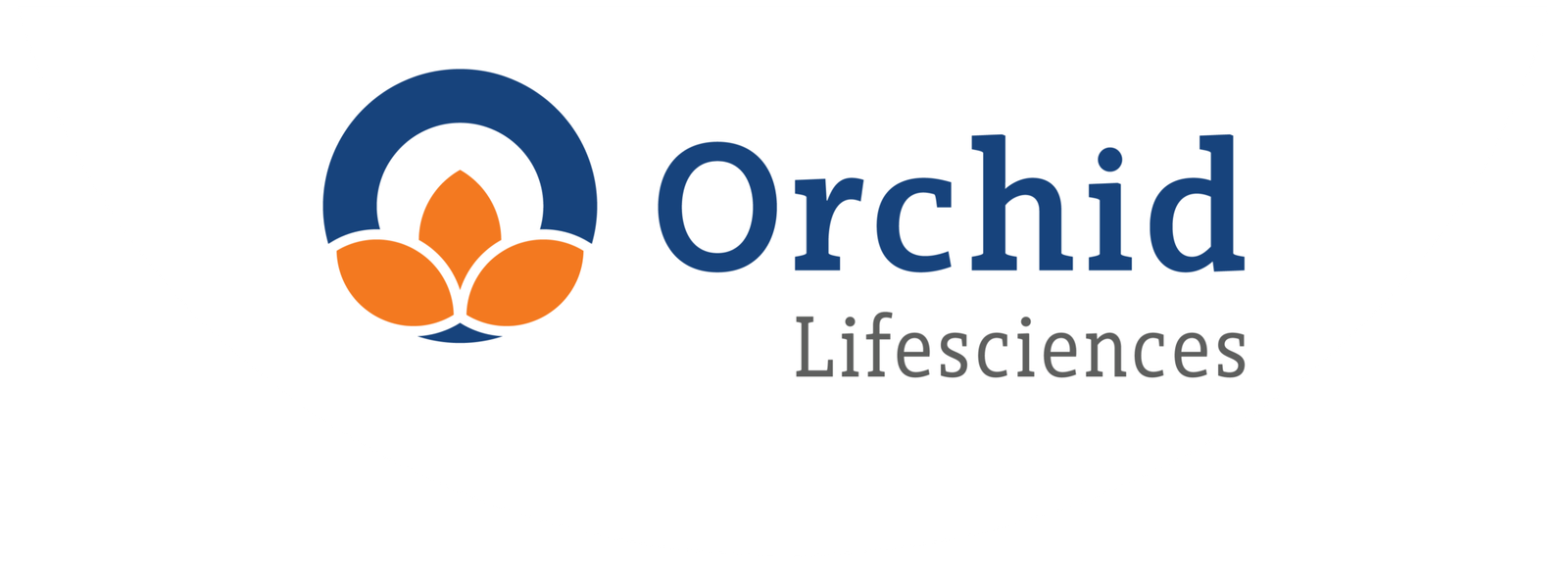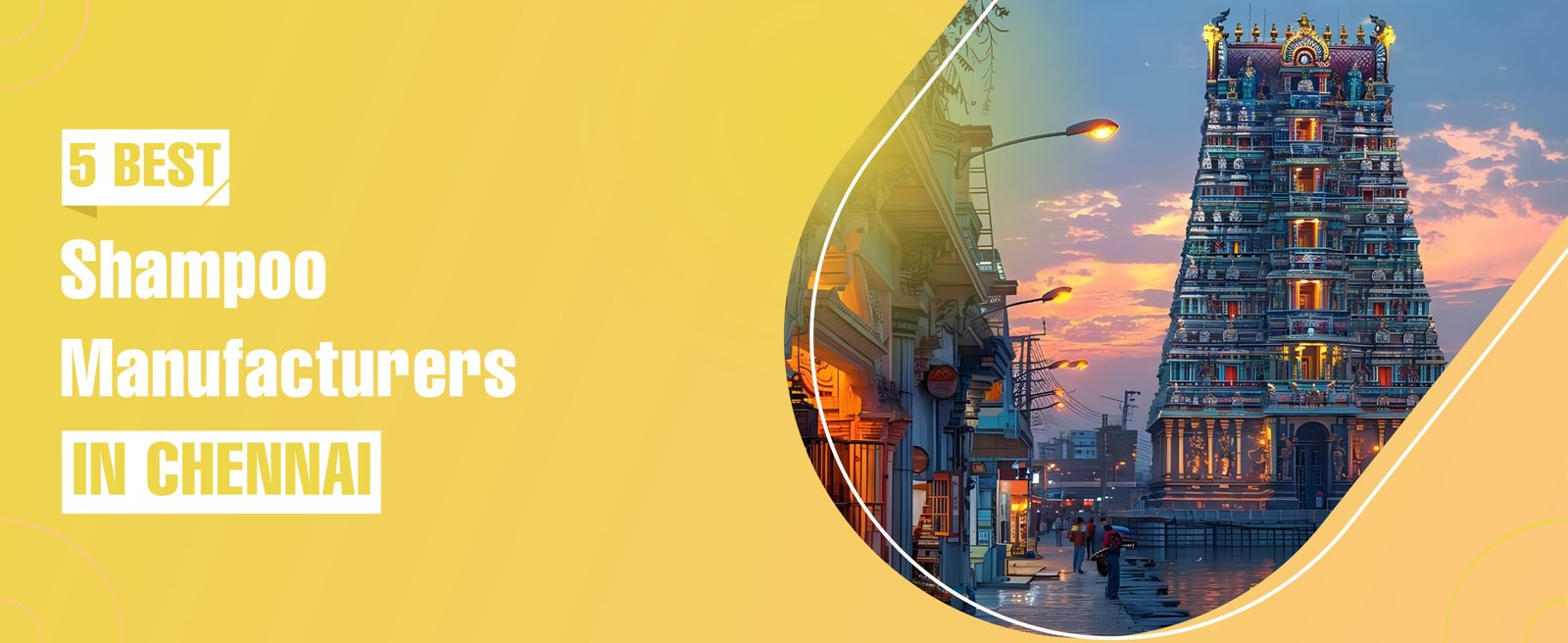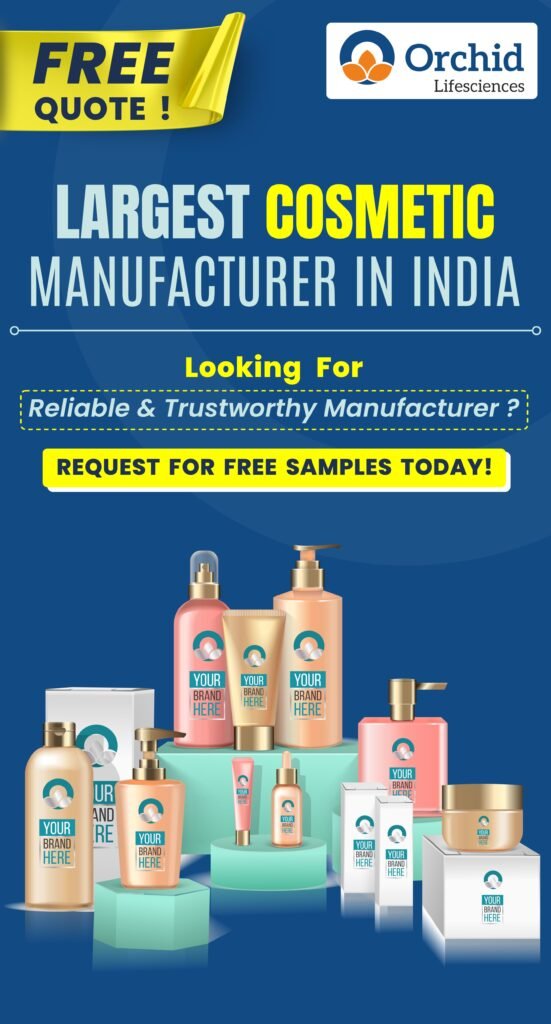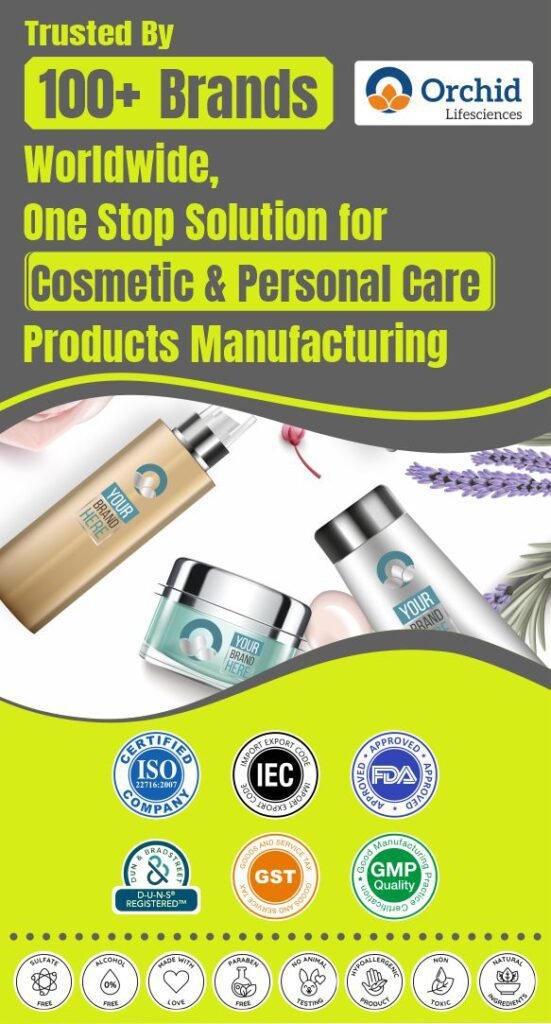Chennai, a bustling hub in South India, is home to numerous renowned shampoo manufacturers catering to diverse hair care needs. These manufacturers produce a wide range of products, including hair shampoos, hair colour shampoos, and herbal hair shampoos with multiple formulations. Known for their innovative approaches and commitment to quality, many of these companies operate as private limited (Pvt) entities and collaborate with the pharma sector to ensure high standards in product development. With their proximity to other key markets like Bangalore, these manufacturers have carved a niche by blending modern technology with traditional herbal ingredients, offering solutions promoting healthy and lustrous hair.
Prominent Shampoo Manufacturers in Chennai
Chennai, a bustling metropolitan city and a hub for commerce in South India, boasts a thriving shampoo market dominated by global and Indian brands. The city’s well-connected ports, advanced infrastructure, and growing consumer base make it an attractive destination for leading players in the hair care industry.
1. Orchid Lifesciences
Though primarily known for its operations in Baddi, Orchid Lifesciences has made strategic inroads into the Chennai market. The company caters to a wide range of private-label brands and specializes in custom formulations. Focusing on high-quality, cost-effective solutions, Orchid has built a strong network in Chennai, particularly among smaller distributors and emerging brands. Its adaptability to local consumer preferences gives it a competitive edge in the city’s diverse market.
They now have manufacturing capabilities for catering to various batch sizes, ranging from 25 kgs to 2000 kgs per batch. Their filling capacity for tubes has expanded from 25 Lakh to 55 Lakh per month, Bottle filling capacity from 5 Lakh to 15 Lakh per month, and jars from 5 Lakh to 12 Lakh per month. They also introduced new pouch packaging machines with a monthly filling capacity of 55 Lakh pouches.
Orchid Lifesciences is certified by many reputable associations like WHO- GMP facility, ISO 22716 certified, DUNS registered, GST Compliant, and approved by the FDA (Food and Drug Administration), which makes them a popular choice not only in India but also in countries across the globe. This assures that each & every product Manufactured at Orchid Lifesciences is 100% safe to use and effective.
Address:
Plot No. 68-72, Tribhuvan Industrial Estate, Road No.11, Nr. Kathwada GIDC, Kathwada, Ahmedabad, Gujarat-382430
Contact:
Email – marketing@orchidlifesciences.com
Website:
https://orchidlifesciences.com/
2. Pantene
Pantene, under the Procter & Gamble (P&G) umbrella, is a household name in Chennai, trusted for its range of shampoos that cater to specific hair concerns like hair fall, dryness, and frizz. Pantene’s consistent presence in retail outlets, from supermarkets to small neighbourhood stores, ensures accessibility. The brand’s extensive marketing campaigns and product innovations resonate well with Chennai’s urban and semi-urban population, further solidifying its market position.
3. L’Oréal
L’Oréal’s premium hair care products have found a strong consumer base in Chennai. The company’s range of shampoos, particularly its L’Oréal Paris and Matrix lines, appeals to individual consumers and professional salons. L’Oréal leverages Chennai’s cosmopolitan culture, offering products tailored to diverse hair care needs. Additionally, the brand’s emphasis on sustainability and eco-friendly packaging aligns with the growing environmental awareness among Chennai’s urban youth.
4. Mamaearth
Mamaearth, with its natural and toxin-free shampoo offerings, has rapidly gained popularity in Chennai. The brand’s emphasis on organic ingredients and Ayurvedic formulations resonates with the city’s preference for holistic and traditional beauty solutions. Mamaearth’s strong online presence and its expansion into retail stores allow it to cater to tech-savvy consumers and the health-conscious population in Chennai.
5. WOW Skin Science
WOW, Skin Science has carved a niche in Chennai’s shampoo market, focusing on herbal and chemical-free products. The brand’s shampoos, enriched with natural ingredients like apple cider vinegar and coconut oil, are particularly popular among Chennai’s environmentally conscious consumers. WOW’s commitment to eco-friendly practices, including recyclable packaging, aligns with the city’s increasing focus on sustainability.
3. Types of Shampoos Manufactured in Chennai
The shampoo manufacturing industry in Chennai caters to a diverse consumer base, producing various shampoos to meet varying hair care needs. The city’s industrial capabilities and proximity to raw materials, including natural and synthetic ingredients, have enabled manufacturers to develop innovative formulations.
1. Herbal and Ayurvedic Shampoos
Chennai’s long-standing association with traditional remedies and Ayurveda makes herbal and Ayurvedic shampoos highly popular. These shampoos are formulated with natural ingredients such as neem, shikakai, hibiscus, and aloe vera, which cater to consumers seeking chemical-free solutions. Many local manufacturers leverage Chennai’s proximity to regions rich in medicinal plants, enabling cost-effective production. These shampoos are favoured for their gentle cleansing properties and ability to naturally address issues like hair fall and scalp infections.
2. Chemical-Based Shampoos
Chemical-based shampoos dominate the mass-market segment in Chennai. These formulations include surfactants, fragrances, and preservatives, offering intense cleansing action and long shelf life. Widely recognized global brands like Pantene and L’Oréal lead this category, producing shampoos that address common concerns such as oiliness, dryness, and frizz. These products are readily available across retail outlets, making them the go-to choice for consumers seeking quick and effective results.
3. Specialized Shampoos
Chennai’s growing urban population has spurred demand for specialized shampoos tailored to specific hair needs.
Anti-Dandruff Shampoos: Formulated with active ingredients like zinc pyrithione or ketoconazole, these target dandruff and scalp-related issues.
Colour-Protect Shampoos: Designed for coloured or chemically treated hair, these shampoos prevent fading and maintain vibrancy.
Sulfate-Free Shampoos: Gaining traction among health-conscious consumers, sulfate-free shampoos offer milder cleansing, making them suitable for sensitive scalps.
4. Organic and Eco-Friendly Variants
The rising awareness of environmental sustainability has driven the demand for organic and eco-friendly shampoos in Chennai. These variants use certified organic ingredients, are free from synthetic additives, and are packaged in biodegradable or recyclable materials. Brands like Orchid Lifesciences, Mamaearth and WOW Skin Science have capitalized on this trend, producing shampoos that appeal to Chennai’s environmentally conscious consumers.
Raw Materials and Ingredients
The shampoo manufacturing industry in Chennai utilizes a mix of natural and synthetic ingredients to create products that cater to diverse consumer needs. These raw materials are selected based on their functional properties, availability, and cost-effectiveness.
1. Common Ingredients Used in Shampoo Production
Surfactants: Key cleaning agents like sodium lauryl sulfate (SLS) and sodium laureth sulfate (SLES) are widely used for their foaming and cleansing properties.
Conditioning Agents: Ingredients like silicones, panthenol, and quaternary ammonium compounds improve hair texture and manageability.
Thickeners and Stabilisers: Substances such as xanthan gum and carbomers ensure a uniform and appealing product consistency.
Preservatives: Chemicals like parabens or natural alternatives (e.g., potassium sorbate) prevent microbial growth, extending shelf life.
Fragrances and Colours: These enhance the sensory appeal of shampoos, making them more attractive to consumers.
2. Locally Sourced vs. Imported Raw Materials
Chennai-based manufacturers benefit from access to both locally sourced and imported raw materials.
- Locally Sourced: Ingredients like coconut oil, hibiscus, neem, and shikakai are abundantly available in Tamil Nadu and neighbouring regions. These materials are cost-effective and crucial for herbal and Ayurvedic shampoos.
- Imported: High-performance synthetic ingredients, including specialized surfactants and conditioning agents, are often imported to meet quality and performance standards for premium or specialized products.
3. Role of Natural Ingredients in Chennai’s Manufacturing Practices
Natural ingredients play a significant role in Chennai’s shampoo manufacturing due to the city’s proximity to regions known for their herbal wealth. Brands often integrate these elements to produce Ayurvedic and herbal shampoos that appeal to consumers seeking eco-friendly and chemical-free products. This focus on natural ingredients also aligns with the global sustainability and holistic wellness trend.
5. Manufacturing Processes and Technologies
Shampoo manufacturing in Chennai combines traditional production workflows with advanced technologies to deliver high-quality products. The industry follows a structured process that ensures consistency, efficiency, safety, and compliance with regulatory standards.
1. Overview of Production Processes
Formulation Development: The process begins with research and development, where formulations are designed to address specific hair care needs. This involves precisely selecting and testing ingredients such as surfactants, conditioning agents, and natural extracts.
Mixing and Emulsification: Ingredients are blended in large mixing tanks under controlled conditions. High-shear mixers are often used to ensure a homogeneous mixture, which is critical for consistency in texture and performance.
Filling and Packaging: Once the formulation is ready, the product is transferred to automated filling lines. These systems ensure accurate filling and sealing of bottles, tubes, or sachets. Packaging is completed with labelling and secondary wrapping, readying the product for distribution.
2. Advanced Technologies Used in Chennai
Automated Production Lines: Automation enhances precision and efficiency in processes like ingredient dosing, mixing, and packaging, reducing human error and production time.
AI and Iot Integration: Some manufacturers employ AI and Iot technologies to monitor production parameters in real-time, ensuring optimal conditions and immediate detection of deviations.
Green Technologies: Technologies such as water-efficient systems and renewable energy sources are increasingly used to make production more sustainable.
Specialised Equipment: High-pressure homogenisers and advanced emulsifiers create complete formulations, such as sulfate-free or herbal shampoos, ensuring stability and efficacy.
Quality Control Measures
Strict quality control (QC) protocols are implemented at every stage of production:
Raw Material Testing: Ensures the purity and safety of ingredients.
In-Process Quality Checks: Monitors parameters like ph, viscosity, and consistency during mixing.
Finished Product Testing: Assesses performance, shelf stability, and microbial safety to meet regulatory standards like GMP (Good Manufacturing Practices) and BIS (Bureau of Indian Standards).
Regulations and Compliance
Stringent regulations govern shampoo manufacturing in India to ensure product safety, quality, and compliance with environmental standards. Manufacturers in Chennai must adhere to these guidelines to maintain consumer trust and meet domestic and international market requirements.
1. Standards for Cosmetic Manufacturing in India
Shampoo, categorized as a cosmetic product, is regulated under the Drugs and Cosmetics Act of 1940 and the Rules of 1945. This legislation mandates compliance with safety, labelling, and manufacturing standards. Key regulatory bodies include:
Bureau of Indian Standards (BIS): Provides specifications for quality and safety in cosmetics.
FSSAI (Food Safety and Standards Authority of India): While primarily for food, it oversees herbal products with edible components.
2. Certifications Required for Shampoo Manufacturers
Good Manufacturing Practices (GMP): Ensures products are consistently manufactured to high-quality standards, focusing on hygiene, documentation, and operational controls.
ISO Certifications:
- ISO 9001: Focuses on quality management systems.
- ISO 22716 specifically addresses GMP for cosmetics.
Ayush Certification (for Ayurvedic and herbal shampoos): Required for products using traditional medicinal formulations.
Environmental Compliance: Manufacturers must comply with waste management norms and obtain necessary certifications for pollution control.
3. Impact of Government Policies on Shampoo Production
The Indian government supports cosmetic manufacturing through initiatives like Make in India and Ease of Doing Business. Tax benefits, subsidies, and MSME (Micro, Small, and Medium Enterprises) incentives encourage local production. However, compliance with environmental regulations, such as water usage restrictions and waste disposal norms, adds operational challenges. Exporters must also meet international standards, increasing costs but enhancing global market access.
Distribution & Supply Chain
Effective distribution and supply chain management are critical for shampoo manufacturers in Chennai to ensure their products efficiently reach consumers domestically and internationally. Chennai’s strategic location and robust infrastructure significantly enhance the region’s ability to serve diverse markets.
1. Domestic and International Distribution Channels
Domestic Distribution:
- Traditional Retail: Manufacturers rely on a network of wholesalers, distributors, and retailers to supply products to urban and rural markets. Supermarkets, pharmacies, and small neighbourhood stores are key outlets.
- Modern Retail Chains: Partnerships with national chains like Big Bazaar and Reliance Retail enable brands to reach a more extensive urban consumer base.
- Online Platforms: E-commerce giants such as Amazon, Flipkart, and Nykaa serve as vital channels for direct consumer sales, offering convenience and reach.
International Distribution:
- Export Markets: Chennai-based manufacturers cater to Southeast Asia, the Middle East, and Africa demand. These regions often import shampoos produced in Chennai for their affordability and quality.
- Private Label Agreements: Partnering with international brands for contract manufacturing allows manufacturers to access global supply chains.
2. Role of Chennai’s Port and Logistics Infrastructure
Chennai’s port, one of the largest in India, plays a pivotal role in facilitating both the import of raw materials and the export of finished goods. Its connectivity to global trade routes ensures efficient shipping of products to international markets. The city is also well-integrated with national highways and rail networks, enabling seamless distribution across India. Additionally, warehousing facilities and cold storage units near the port streamline storage and logistics operations, reducing lead times.
3. Partnerships with Retail Chains, Online Platforms, and Export Markets
- Retail Chains: Collaborating with major retail chains enhances product visibility and credibility. In-store promotions and partnerships help brands penetrate competitive markets.
- E-Commerce Platforms: The rapid growth of online shopping in India has encouraged manufacturers to list products on platforms like Amazon and Flipkart, targeting tech-savvy consumers.
- Export Markets: Long-term partnerships with distributors in foreign markets ensure a steady demand for products, particularly herbal and organic shampoos, which are popular internationally.
8. Market Trends and Consumer Preferences
Consumer preferences in the shampoo market are evolving rapidly, driven by heightened awareness of health, sustainability, and personalised care. These trends are reshaping the strategies of manufacturers in Chennai, compelling them to innovate and adapt.
1. Rising Demand for Eco-Friendly and Cruelty-Free Products
There is a growing preference for environmentally sustainable and ethically produced shampoos. Consumers increasingly favour products free from harmful chemicals like sulfates, parabens, and silicones. Cruelty-free shampoos, which are not tested on animals, and those using biodegradable packaging are particularly in demand. This trend has encouraged brands to adopt green manufacturing practices and market their products as sustainable and ethical.
2. Influence of Consumer Awareness on Product Formulations
Consumers today are more informed about the ingredients in their personal care products. This awareness has increased demand for formulations with natural and organic ingredients, such as aloe vera, tea tree oil, and hibiscus. Manufacturers in Chennai are responding by creating herbal and Ayurvedic shampoos, aligning with the city’s cultural inclination toward holistic wellness. Brands also focus on transparency, providing detailed labelling highlighting their commitment to safety and quality.
3. Emerging Trends
- Subscription-Based Models: Subscription services offering regular delivery of shampoo products are gaining popularity, particularly among urban consumers. This model provides convenience and fosters customer loyalty.
- Customized Shampoos: The demand for personalization is rising, with consumers seeking shampoos tailored to specific hair types or concerns. Manufacturers are exploring technologies like AI to analyze customer needs and deliver bespoke products.
Challenges Faced by Manufacturers
Shampoo manufacturers in Chennai encounter various challenges that impact their growth and profitability. These issues require strategic solutions to ensure long-term success, from intense competition to sustainability demands.
1. Competition from Multinational Brands
Multinational corporations like Orchid Lifesciences, L’Oréal, Pantene and Dove dominate the market with their strong brand presence, extensive marketing budgets, and global supply chains. These companies often introduce innovative products and set benchmarks for quality and performance, making it challenging for smaller or local manufacturers to compete. Additionally, multinational brands benefit from economies of scale, allowing them to offer competitive pricing. Local manufacturers must differentiate themselves through unique formulations, such as herbal or Ayurvedic shampoos, or target niche markets to stay relevant.
2. Fluctuating Costs of Raw Materials
The cost of key ingredients, such as surfactants, fragrances, and conditioning agents, is highly volatile due to global market fluctuations and supply chain disruptions. For instance, the dependency on imported raw materials like specialized surfactants can increase costs, especially during geopolitical tensions or currency fluctuations. Locally sourced natural ingredients may also face supply shortages due to seasonal variations or over-harvesting. These challenges make it difficult for manufacturers to maintain consistent pricing while ensuring product quality.
3. Environmental Concerns and Sustainability Pressures
Rising consumer and regulatory focus on environmental sustainability poses a significant challenge for shampoo manufacturers. The use of non-biodegradable packaging, water-intensive production processes, and chemical waste disposal contributes to environmental concerns. Manufacturers are pressured to adopt eco-friendly practices, such as using biodegradable or recyclable packaging, implementing water-saving technologies, and transitioning to green formulations. While these measures align with market demands, they often involve substantial investment in infrastructure and technology, which can strain resources for smaller players.
Role of Research and Development
Research and Development (R&D) is pivotal in shampoo manufacturing, driving innovation and ensuring products meet evolving consumer demands. Manufacturers in Chennai invest significantly in R&D to stay competitive, improve formulations, and cater to niche markets.
1. Innovation in Shampoo Formulations
R&D efforts focus on developing advanced formulations that address specific hair care needs, such as anti-dandruff, hair strengthening, and colour protection. Innovations include:
- Sulfate-Free and Paraben-Free Shampoos: Responding to consumer demand for gentler, chemical-free products.
- Herbal and Ayurvedic Solutions: Leveraging natural ingredients like neem, shikakai, and hibiscus to appeal to eco-conscious consumers.
- Advanced Delivery Systems: Formulating shampoos with micro-encapsulation technologies to ensure longer-lasting benefits.
2. Collaborations with Research Institutes in Chennai
Chennai’s strong educational and scientific ecosystem, including institutions like IIT Madras and Anna University, fosters collaborations between manufacturers and researchers. These partnerships enable access to cutting-edge technology, in-depth hair and scalp health studies, and innovative ingredient applications. Collaborative projects often focus on sustainable production methods, enhancing the efficacy of natural ingredients, and testing new formulations for safety and performance.
3. Focus on Consumer Feedback for Product Improvement
Consumer feedback is integral to R&D in shampoo manufacturing. Insights gathered through surveys, product reviews, and focus groups help identify gaps in existing products and guide the development of new ones. For instance, the rising demand for customized shampoos tailored to specific hair types has encouraged manufacturers to incorporate personalization technologies into their R&D processes.
Marketing Strategies
Effective marketing strategies are essential for shampoo manufacturers to establish brand identity, reach target audiences, and drive sales. Manufacturers employ traditional and modern marketing techniques in Chennai to cater to local, national, and international markets.
Digital Marketing:
Digital platforms have become a primary advertising medium for shampoo brands. Manufacturers utilize social media channels like Instagram, Facebook, and YouTube to engage consumers with targeted advertisements, video tutorials, and testimonials. Paid ads on platforms like Google and influencer partnerships amplify visibility among specific demographics.
Influencer Collaborations:
Collaborating with influencers and beauty bloggers has become a key trend. Influencers with large followings demonstrate product usage, share reviews, and build trust among their audiences. For instance, herbal and eco-friendly brands often partner with influencers advocating sustainable lifestyles, reaching a niche but growing segment of consumers.
Local Campaigns:
Manufacturers focus on campaigns in Chennai and surrounding regions that emphasize cultural and regional relevance. Advertisements in local languages and the use of Tamil film celebrities as brand ambassadors resonate strongly with regional consumers. Promotions in local media, including radio and regional TV channels, enhance brand recall.
National Campaigns:
For more prominent brands or manufacturers with a pan-India presence, campaigns focus on broader themes like “gentle care,” “protection from damage,” or “natural goodness.” National TV commercials, endorsements by Bollywood celebrities, and collaborations with nationwide retail chains ensure extensive reach.
Packaging plays a significant role in attracting consumers and setting products apart in a competitive market. Key trends include:
Eco-Friendly Packaging: Recyclable, biodegradable, or minimalistic designs cater to sustainability-conscious consumers.
Aesthetic Appeal: Eye-catching designs and vibrant colours draw attention to retail shelves.
Functionality: Features like easy-to-use pumps or travel-friendly sachets add convenience, enhancing user experience.
Premium Look: For high-end shampoos, sleek and elegant packaging helps justify premium pricing and conveys quality.
Sustainability Practices
Sustainability has become a priority for shampoo manufacturers, driven by consumer demand and regulatory requirements. In Chennai, brands adopt eco-conscious practices to minimize environmental impact and position themselves as responsible market players.
1. Initiatives for Reducing Plastic Usage in Packaging
Biodegradable and Recyclable Packaging: Many manufacturers are transitioning to materials like biodegradable plastics, paper-based alternatives, and recyclable PET bottles. This reduces the environmental footprint of packaging waste.
Refill Stations and Minimalist Designs: Some brands are introducing refill stations at retail outlets, encouraging consumers to reuse containers. Minimalist packaging designs also help reduce material usage while maintaining aesthetic appeal.
Use of Post-Consumer Recycled (PCR) Plastics: Incorporating PCR plastics into shampoo bottles promotes circular economy principles and reduces reliance on virgin plastic.
2. Adopting Green Manufacturing Processes
Energy Efficiency: Chennai-based manufacturers are investing in energy-efficient equipment and utilizing renewable energy sources like solar or wind power to reduce carbon emissions.
Water Conservation: Technologies such as closed-loop water systems and reduced water formulations help conserve water during production, a critical factor in sustainability.
Sustainable Sourcing: Emphasis is placed on using ethically sourced, natural ingredients like shikakai, aloe vera, and coconut oil, ensuring minimal harm to ecosystems.
3. Role of Chennai Manufacturers in Promoting Sustainable Cosmetics
Chennai’s manufacturers are vital in India’s sustainable cosmetics movement. Herbal and Ayurvedic shampoo brands from the region actively promote eco-friendly values. By adopting green technologies, partnering with local communities for ingredient sourcing, and committing to sustainable practices, these manufacturers set benchmarks for ethical and environmentally responsible production.
Economic Impact on Chennai
Shampoo manufacturing has significantly contributed to Chennai’s economy, which is driven by the city’s industrial infrastructure, skilled workforce, and strategic location. This sector is vital in creating employment opportunities, boosting the local economy, and enhancing Chennai’s reputation in the global cosmetic market.
1. Employment Opportunities
Chennai’s shampoo manufacturing units generate substantial employment, directly and indirectly. The sector employs skilled professionals in R&D, production, quality control, and marketing while creating opportunities for semi-skilled workers in packaging, logistics, and maintenance. Ancillary industries such as raw material suppliers, bottle manufacturers, and transportation services benefit from the ripple effect of this growth, further increasing job prospects in the region.
2. Contribution to Local and State Economy
Shampoo manufacturing significantly bolsters Chennai’s local and Tamil Nadu’s state economy. It contributes through tax revenues, foreign direct investment (FDI), and exports. Tamil Nadu’s pro-business policies, such as subsidies and incentives, attract domestic and international manufacturers to set up operations in Chennai, adding to the state’s GDP. Local sourcing of raw materials, energy consumption, and service partnerships ensure money circulates within the economy, fostering regional economic development.
3. Strengthening Chennai’s Global Standing
Chennai’s robust shampoo manufacturing sector enhances its position in the global cosmetic market. Leading global brands like Unilever and Procter & Gamble have established manufacturing units here, drawn by Chennai’s excellent port facilities, connectivity, and skilled labour pool. The city is also home to domestic brands catering to international markets. This boosts exports and establishes Chennai as a hub for innovation in the cosmetic industry, with R&D centres contributing to sustainable and consumer-friendly products.
Future Outlook
The future of Chennai’s shampoo manufacturing sector looks promising, with significant opportunities in the herbal and organic shampoo categories, expanding markets, and technological advancements shaping its growth trajectory.
1. Opportunities in Herbal and Organic Shampoos
There is a growing consumer shift toward natural and eco-friendly products, especially in the personal care sector. Herbal and organic shampoos, which emphasize natural ingredients, sustainable practices, and chemical-free formulations, are gaining traction globally. Chennai-based manufacturers can capitalize on this trend by innovating and producing a wide range of herbal shampoos tailored to consumer preferences. By tapping into this market, manufacturers can cater to a health-conscious consumer base and benefit from premium pricing and enhanced brand loyalty.
2. Emerging Markets
Chennai-based shampoo manufacturers are poised to explore emerging markets, particularly in Southeast Asia, Africa, and the Middle East, where demand for personal care products is expanding rapidly. The city’s strategic location, with excellent port connectivity, facilitates easy access to these regions. As the middle-class population in these markets grows, there will be an increasing demand for quality personal care products, including shampoos. This presents an opportunity for Chennai manufacturers to expand their export footprint and penetrate new international markets.
3. Technological Advancements
Technological innovations in production, packaging, and distribution are set to revolutionize the shampoo manufacturing industry. Automation, AI, and Iot integration in production lines will increase efficiency, reduce costs, and ensure consistent quality. Additionally, advancements in formulation technology can help create more effective and sustainable products, reducing the environmental impact of packaging and production processes. These advancements will enable Chennai manufacturers to stay competitive, meet evolving consumer demands, and take charge of the global market.
Conclusion
The shampoo manufacturers in Chennai have established a strong presence in the hair care industry, delivering top-quality products that cater to diverse customer needs. From herbal shampoos to hair growth solutions, these manufacturers and suppliers in Chennai and Tamil Nadu offer a wide product range that blends natural ingredients with advanced formulations. Known for their commitment to excellence, companies like Orchid Lifesciences, Vcare, Eco Organics India, Mahatreya Herbals, and others ensure their hair care products meet the highest standards.
Whether you’re looking for shampoo suppliers and dealers in Chennai, leading shampoo manufacturers, or private companies like Pvt Ltd entities such as Orchid Lifesciences, Caredura Products and Mastrowin Groups, the city offers a vibrant market. Areas like Porur, Madipakkam, Maduravoyal, and Chromepet are home to many such firms. These companies, including Orchid Lifesciences, Naturo-Health Organic Enterprises and Viencee Pharma Science, are dedicated to manufacturing and supplying premium natural hair care products, including herbal and hair shampoos in Chennai, all while meeting timelines within the promised time frame.
For those seeking to connect with the best shampoo manufacturers, platforms like Justdial provide easy access to contact details of trusted suppliers and dealers. Additionally, OEMS in Chennai and surrounding areas like Coimbatore, Bengaluru, and Chengalpattu further expand the market with innovative offerings in hair care. With addresses such as Second Main Road, Housing Unit Edayarpalayam, and Madukkarai Market Road, these companies stand out for their quality products and diverse options, enhancing types of hair care and improving lives through sustainable herbal products.
In conclusion, Chennai is a hub for leading shampoo suppliers, delivering eco-friendly solutions and catering to the growing demand for effective, natural hair care products, reaffirming its reputation as a centre for excellence in the hair care industry.






